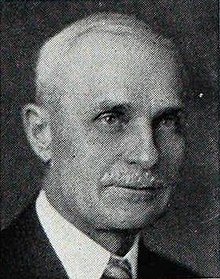“Only the tax on tea retained”
In a conversation earlier this week I shared, and not for the first time, an observation about Lord North’s repeal of the Townshend duties in 1770. Parliament scrapped the duties on everything but tea—yet tea was what accounted for the bulk of the revenue, so it wasn’t that big a change.
That fact had stuck with me since I read this passage in Oliver M. Dickerson’s 1958 article in the New England Quarterly, “Use Made of the Revenue from the Tax on Tea”:
At the same time, I couldn’t help recalling that Dickerson developed a real animus toward the British Customs service, which enforced and collected those tariffs. He revived the Boston Whigs’ accusation that Customs officers had shot at the crowd in King Street in his 1954 paper, “The Commissioners of Customs and the ‘Boston Massacre’,” also published in the New England Quarterly. After 1770, not even the Boston Whigs believed that anymore.
So was Dickerson’s conclusion backed up by data or just his impression? Would his impression be solid? I wanted to see the numbers Dickerson used for his conclusion about the Townshend duties. Unfortunately, the paragraph I quoted above had no citations.
Later in the same paper, however, Dickerson quoted a figure for total collections under Townshend’s revenue act, and then another for “Total reported collections of American taxes from all sources, 1765-1774.” Both those citations pointed to his own book, The Navigation Acts and the American Revolution, published in 1951.
Luckily, I have a copy. Even more luckily, I remembered where I’d shelved it.
The data pertinent to the passage above appears in Table 11 on page 198: “Tax Collections Under the Townshend Revenue Act at Four Principal Ports, 1768–70, Exclusive of Paper, Continental Colonies Only.”
The totals for Boston and Salem:
In New York, tea duties brought in 88% of the total. In Philadelphia, 84%. Only in Charleston, which brought in far more highly-taxed green glass and far less tea than the other three ports, did the other commodities come close to reaping as much revenue as tea.
(The Townshend Act also put a tariff on paper. Or, to be exact, papers. Dickerson wrote frankly ahead of this table: “This omits paper, as the task of computing the tax on sixty-seven kinds of paper at forty-three different ports is more difficult than the results justify. The paper duty at best was a nuisance tax and the yield was small.”)
Thus, Dickerson did present data to support his conclusion. In removing most of his predecessor’s import duties in 1770, Lord North kept more than three-quarters of the actual taxation. I don’t know if the American Whigs were privy to those figures at the time, but the situation helps to explain why they weren’t mollified.
That fact had stuck with me since I read this passage in Oliver M. Dickerson’s 1958 article in the New England Quarterly, “Use Made of the Revenue from the Tax on Tea”:
In its original form this act [written by Charles Townshend] included import duties upon glass, white lead, painters’ colors, and paper as well as tea. Total collections on articles other than tea were so unimportant that they were repealed in 1770 and only the tax on tea retained.Dickerson did more work with Treasury records on American colonial revenue than anyone else in his time, so his remark seemed reliable.
At the same time, I couldn’t help recalling that Dickerson developed a real animus toward the British Customs service, which enforced and collected those tariffs. He revived the Boston Whigs’ accusation that Customs officers had shot at the crowd in King Street in his 1954 paper, “The Commissioners of Customs and the ‘Boston Massacre’,” also published in the New England Quarterly. After 1770, not even the Boston Whigs believed that anymore.
So was Dickerson’s conclusion backed up by data or just his impression? Would his impression be solid? I wanted to see the numbers Dickerson used for his conclusion about the Townshend duties. Unfortunately, the paragraph I quoted above had no citations.
Later in the same paper, however, Dickerson quoted a figure for total collections under Townshend’s revenue act, and then another for “Total reported collections of American taxes from all sources, 1765-1774.” Both those citations pointed to his own book, The Navigation Acts and the American Revolution, published in 1951.
Luckily, I have a copy. Even more luckily, I remembered where I’d shelved it.
The data pertinent to the passage above appears in Table 11 on page 198: “Tax Collections Under the Townshend Revenue Act at Four Principal Ports, 1768–70, Exclusive of Paper, Continental Colonies Only.”
The totals for Boston and Salem:
- white glass: £684
- green glass: £169
- lead and painters’ colors: £168
- tea: £5,524
In New York, tea duties brought in 88% of the total. In Philadelphia, 84%. Only in Charleston, which brought in far more highly-taxed green glass and far less tea than the other three ports, did the other commodities come close to reaping as much revenue as tea.
(The Townshend Act also put a tariff on paper. Or, to be exact, papers. Dickerson wrote frankly ahead of this table: “This omits paper, as the task of computing the tax on sixty-seven kinds of paper at forty-three different ports is more difficult than the results justify. The paper duty at best was a nuisance tax and the yield was small.”)
Thus, Dickerson did present data to support his conclusion. In removing most of his predecessor’s import duties in 1770, Lord North kept more than three-quarters of the actual taxation. I don’t know if the American Whigs were privy to those figures at the time, but the situation helps to explain why they weren’t mollified.


No comments:
Post a Comment